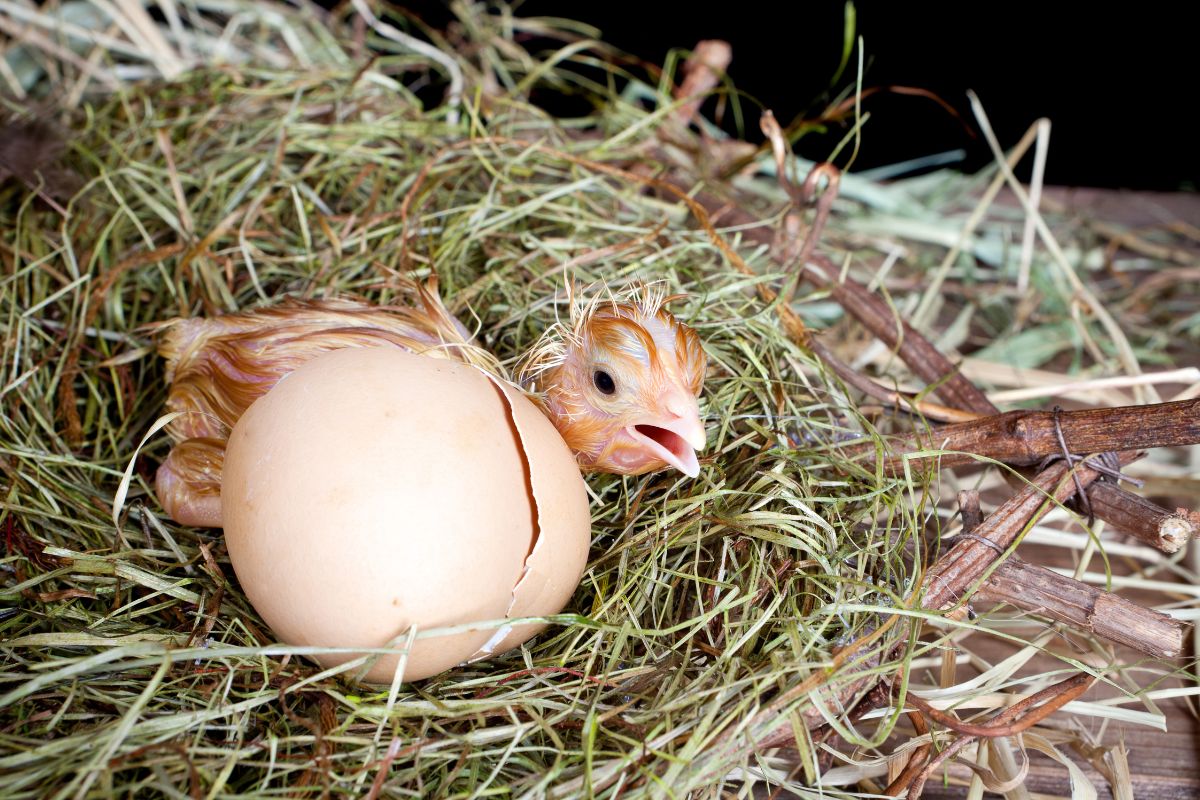Does anyone really want roosters? They’re loud, aggressive, illegal in some places, can’t lay eggs, and they don’t play well with others. Most of the people we talk to agree that roosters are a pain. So why bother? Well, because they might be more useful than you think.
As a chicken owner, you’ve likely wondered if hens can produce chicks without a rooster I’ve done extensive research on this common question to provide a thorough, evidence-based answer
The Role of the Rooster
First, let’s review some key chicken biology Hens are able to produce eggs through the process of ovulation However, a rooster is required for fertilization to occur.
Fertilization happens when sperm from the rooster penetrates the ovum released from the hen’s ovary. This combines the genetic material, allowing cell division and embryonic development to begin
Without a rooster, eggs remain unfertilized. The hen’s ovary will keep releasing eggs, but they can’t become embryos without rooster sperm.
What the Science Shows
Numerous scientific studies have definitively shown that chicken eggs do not hatch without a rooster.
For 28 days, hens were kept away from roosters in an experiment that was published in the journal Poultry Science. There were more than 1,000 eggs laid, but not a single one showed signs of parthenogenesis or embryonic development [1].
Researchers at Mississippi State University conducted a similar study where hens were closely monitored to ensure no contact with roosters. Again, all eggs laid were confirmed unfertilized with no signs of fertility [2].
The evidence is clear: fertilization requires rooster sperm. Without a rooster, eggs remain infertile and incapable of hatching.
Explaining Common Misconceptions
Even though scientists agree, some chicken owners say they’ve had eggs hatch without a rooster. What explains these reports? Here are some possibilities:
-
Brief, unseen encounters with roosters: Even a brief mating can fertilize numerous eggs. The hen may have had momentary access to a neighbor’s rooster.
-
Parthenogenesis: In very rare cases, unfertilized eggs start developing due to parthenogenesis. But embryos from parthenogenetic eggs invariably die.
-
Misinterpreting early embryo death: Infertile eggs sometimes exhibit blood spots, clouding, or yolk changes during incubation. This can be mistaken for true embryonic development.
-
Observing incubator changes: Heat and humidity cause physical changes in contents of infertile eggs. This gives the appearance of fertility.
-
Assuming stored sperm: Hens can store viable sperm for 2-3 weeks after mating. Any eggs during this time would be fertilized.
Key Takeaways
-
Hens naturally ovulate and lay eggs without a rooster present.
-
For fertilization to occur, rooster sperm must penetrate the ovum.
-
Extensive research confirms hens in isolation lay only infertile eggs.
-
Parthenogenesis and sperm storage may explain rare exceptions.
-
Physical egg changes during incubation mimic early development.
In the end, chicks won’t be able to hatch without a rooster to fertilize the eggs. Sometimes there are strange exceptions, but they shouldn’t change the scientific fact that roosters are needed for reproduction.
Frequently Asked Questions
Here are answers to some other common questions about egg fertility:
Can I incubate unfertilized eggs?
Yes, but they will not hatch. The eggs may exhibit some physical changes, but there is no embryo.
How do I tell if an egg is fertilized?
Candling is the best method. Fertilized eggs will show a network of blood vessels and dark spot after a few days of incubation.
Can one rooster fertilize many hens?
Yes. A single rooster can successfully fertilize eggs from a flock of 8-12 hens, depending on health and conditions.
How long are eggs fertile after mating?
Up to 2-3 weeks due to sperm storage. But ongoing fertility requires regular contact with a rooster.
Do hens need a rooster to lay eggs?
No. Hens will naturally ovulate and lay eggs their whole life without a rooster. The eggs just won’t hatch.
Can stress or age affect fertility?
Yes. Extremes of temperature, overcrowding, malnutrition, predation, and age can impact fertility in hens and roosters.
Are there any breeds that are fertile without roosters?
No. All chicken breeds require a rooster to fertilize eggs and reproduce. No exceptions are known.
Conclusion
References
[1] Olsen, M.W. and Marsden, S.J., 1954. Virgin birds lay infertile eggs. Poultry Science, 33(5), pp.912-913.
[2] Warren, D.C. and Conrad, R.M., 1941. Time of ovulation in the fowl. Poultry Science, 20(2), pp.131-134.

So why do you need a rooster?
No, roosters can’t lay eggs. No, hens don’t need roosters to lay eggs. However, that doesn’t mean roosters don’t have a very important job to do. Actually, roosters have three very important jobs to do.
Why? Do hens need a rooster to lay eggs?
When it comes to the physical process of laying eggs, roosters are actually useless. Hens do not need a rooster in order to create and lay eggs. They only need a safe place, time, and a healthy food plan with enough calcium and protein to lay healthy eggs. Of course, any eggs laid by a hen where no rooster is present are going to be unfertilized, and therefore will never hatch.
